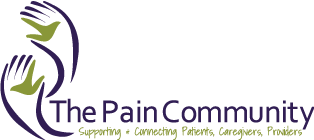Music as Medicine
TPC Pain CollegeRegistration/Consent to Participate
Who is the researcher?
The researcher for this study is faculty from Eastern Michigan University: Yvette Colón, PhD, ACSW, LMSW (Primary Investigator)
What is the purpose of this research?
The purpose of this research is to evaluate the effects that participation in an online music program has in reducing the negative effects of chronic pain on mental health, cognitive health, social health, and quality of life. The program consists of six music webinars which are 6 – 47 minutes each; the total program is expected to take a minimum of five hours. The webinars can be completed at your own pace, however, and as many times as you would like. You do not have to participate in this research study in order to participate in the music program.
What will happen if I participate in this survey?
You will be asked to fill out one survey with 26 questions at registration for the program and one survey with 14 questions six months after registration. They each will require approximately 15 to 20 minutes to complete.
What are the anticipated risks for participation?
There are no major physical or psychological risks are anticipated for those who take these surveys and participate in the program. It is possible that you may experience some stress or discomfort or other unforeseeable risks in the event the surveys or program cause you to recall past experiences of pain and discomfort. Some of the survey questions are personal in nature and it is possible that they may make you feel uncomfortable. You do not have to answer any questions that make you uncomfortable or that you do not want to answer.
Are there any benefits to participating?
The results of this survey will help researchers and the public to better understand the relationship between healing art and the effects of chronic pain. You may not directly benefit from completing this survey. However, your survey information will assist researchers in analyzing how organizations might improve access to programs that would benefit individuals with chronic pain.
As part of general policy discussions on the relationship between music and pain management, the results of this study will be published and presented to the public.
Is participation voluntary?
Yes. Participation in this research is your choice. You may refuse to participate at any time. If you so choose, you may elect to stop participating in the program at any time or decline to complete Survey 2 in six months. There is no cost to your participation and no costs to you that may result from participation in this study.
Can the survey information be reasonably linked back to me?
The data collected for this survey does not require your real name and any information you provide will remain confidential. The data file will be de-identified; there will be a separate key that links study ID codes with your identifiable information. Your information will be stored in a password-protected computer file. We will store your information for five years after the project ends.
How will my information be stored?
The results from these surveys will be compiled together and analyzed as a whole in electronic spreadsheets. Every effort will be made to keep all survey information confidential by storing all electronic data in secured, password-protected files. We may share the survey information with other researchers outside of Eastern Michigan University; however, the shared data will not contain any information that could be reasonably used to identify you.
Who can I contact with questions?
If you have any questions about the research, please contact:
Yvette Colón, PhD, ACSW, LMSW, Principal Investigator and Professor
School of Social Work
College of Health and Human Services
Eastern Michigan University
206G Marshall Building
Ypsilanti, Michigan 48197
(734) 487-0921
ycolon@emich.edu
If you have any questions about your rights as a research subject, please contact the Eastern Michigan University Human Subjects Review Committee at human.subjects@emich.edu or by phone at (734) 487-3090.
